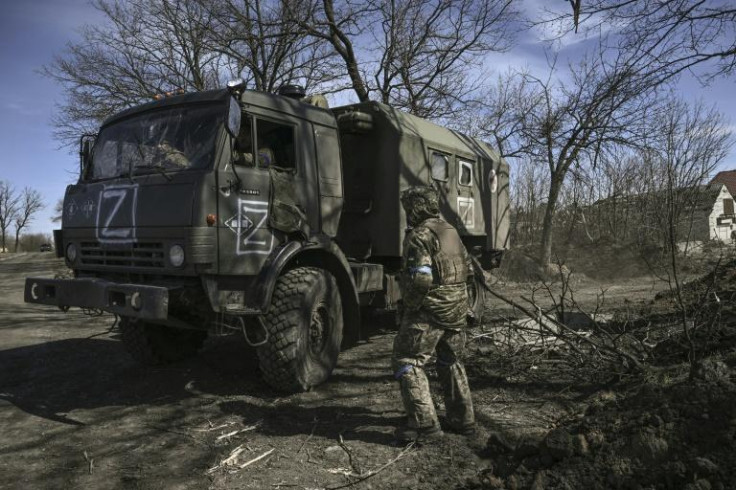Russian dog switches sides to serve Ukrainian troops
The dog was close to dying when he was discovered and rescued by Ukrainian troops.
A three-year-old military dog abandoned by Russian soldiers in Ukraine is now assisting Ukrainian soldiers in sniffing out unexploded mines.
The dog, a Belgian Malinois named Max, was close to losing his life due to starvation when the Ukrainian soldiers found him in a village near the Black Sea. They nursed him back to health slowly and the dog has now switched sides.
Max was surviving on rotten food when he was rescued by the Ukrainian troops from the village in the Nikolaev region. He was found wearing a camouflage collar issued by Russians to their military hounds. The story came to light after the National Guard shared his story through a Facebook post.
"The shepherd belonged to the occupiers who captured one of the villages of the Nikolaev region and when during the liberation of the territory they were crushed by Ukrainian defenders - all the dogs ran into the village. One of the families took in Max," read the post.
A member of the National Guard, named Dmitry, told Daily Star: "From now on, Max will serve on the right side, defending Ukraine and nibbling Russian asses."
He added that the dog is in great physical health and is able to understand basic commands. He has also been taking Ukrainian language classes so he understands instructions better. Malinois are highly intelligent and athletic animals and like all dogs they are also extremely loyal to their owners.
Max is not the only dog that has been helping out Ukraine in its war with Russia. Patron, a two-and-a-half-year-old mine-sniffing dog, has also been helping Ukrainian forces in finding out explosives.
He has even been recognised by Ukraine's President Volodymyr Zelensky for his services to the country since the beginning of Russia-Ukraine war. The dog was presented with the medal at a ceremony organised in Kyiv. Patron is a Jack Russell terrier whose name means "ammo" in Ukrainian language. He has been helping minesweepers in the north-eastern city of Chernihiv.

© Copyright IBTimes 2025. All rights reserved.






















